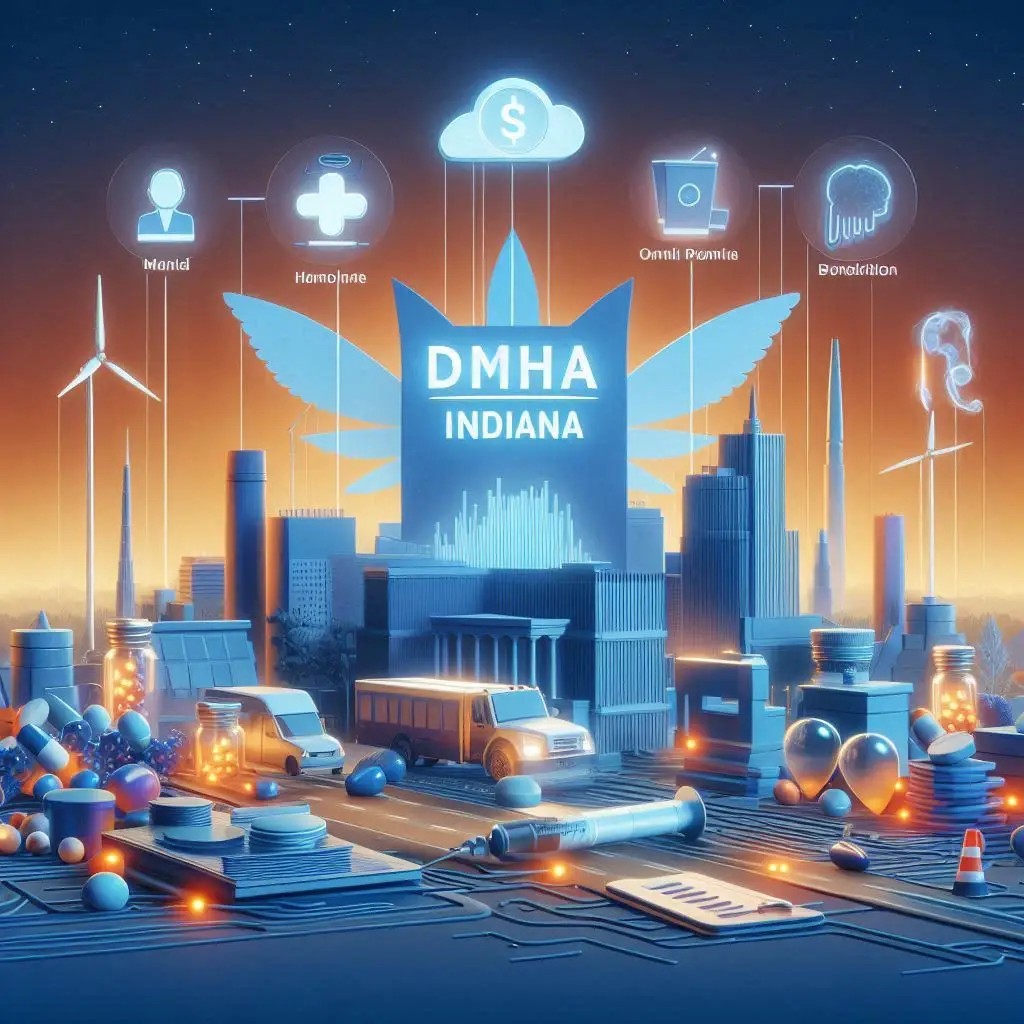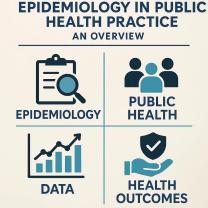What is DMHA Indiana?
What Is DMHA (Indiana)?
The Division of Mental Health and Addiction (DMHA) is Indiana’s state agency dedicated to overseeing mental health and substance use services. It sets standards of care, certifies providers, operates state psychiatric hospitals, manages funding, and more—all aimed at supporting Hoosiers’ recovery and wellness.Indiana GovernmentIndiana Disability Resource Finder
Mission, Vision & Responsibilities
Mission: To champion high-quality, seamlessly integrated, and accessible systems for mental health promotion and substance use disorder prevention, treatment, and recovery.
Vision: Helping Hoosiers build resilience through access to effective mental health and addiction care.
Key Responsibilities:
Certification of community mental health centers and addiction treatment providers.
Licensing and operation of six state psychiatric hospitals (including the NeuroDiagnostic Institute, Evansville Psychiatric Children’s Center, and others).
Administering federal and state funding for mental health and addiction services, especially for uninsured or underinsured individuals.
Programs & Services Offered
DMHA offers an extensive array of programs and services, including—but not limited to:
Addiction Services
Find Treatment or Recovery Housing
Landlord Mitigation Reserve Program
Recovery Residence Designation (working with INARR on sober living site certification)
Problem Gambling Support
Opioid Treatment Program
Recovery Works
TI-ROSC Online Hub (Trauma-Informed Recovery-Oriented Systems of Care)
Provider-specific resources and supports
Mental Health Services
Adult 1915(i) Programs (Medicaid waivers for adults)
Projects for Assistance in Transition from Homelessness (PATH)
Medicaid Rehabilitative Option
State Psychiatric Hospitals
Community Mental Health Centers serving those with serious mental illness or substance use disordersIndiana Government+1
Prevention & Youth-Focused Initiatives
Substance misuse prevention and mental health promotion campaigns
Indiana Youth Services
Indiana Pregnancy Promise Program
Indiana Primary Care and Behavioral Health Integration Initiative
Other Supports
Quality Assurance and Improvement initiatives
Forms, Publications, Reports & Tools for providers and consumers
Indiana Suicide Prevention resources
County Provider Reports and statewide Resource Guides
Opportunities to Request a Speaker or File a Complaint
For Consumers: DMHA Registration
If you’re seeking publicly funded mental health or addiction services through providers like Aspire Indiana Health:
You may register with DMHA based on your financial situation and need.
Registration often qualifies you for a sliding fee scale, though co-pays or insurance may still apply.
You retain certain consumer rights—such as privacy, annual treatment review, and the ability to file complaints for unresolved issues. DMHA may also conduct satisfaction surveys.Inter CDN
Summary at a Glance
| Area | Highlights |
|---|---|
| Agency Role | Sets standards, certifies providers, operates hospitals, manages funding |
| Main Programs | Addiction services, mental health services, youth & prevention initiatives |
| Provider Network | Community Mental Health Centers, state psychiatric hospitals |
| Consumer Services | Registration, sliding scale access, consumer rights, support services |
| Additional Resources | Suicide prevention, data/reports, grants, outreach opportunities (e.g. request a speaker) |
Understanding DMHA Indiana: A Guide to Mental Health and Addiction Resources
Mental health and addiction are critical aspects of overall well-being, and having access to supportive resources is vital for individuals and communities. In Indiana, the Division of Mental Health and Addiction (DMHA) serves as a cornerstone for these services, working to ensure that Hoosiers receive the care they need. This blog post will provide an overview of DMHA's role, services, and how you can access their valuable resources.
Overview of DMHA Indiana
The Indiana Division of Mental Health and Addiction (DMHA) is a division within the Family and Social Services Administration (FSSA). Its mission is to ensure that Indiana citizens have access to a comprehensive and effective system of mental health and addiction services. DMHA is responsible for planning, funding, and monitoring a wide range of prevention, treatment, and recovery support services throughout the state. They aim to promote the health and well-being of individuals, families, and communities by addressing mental illness and substance use disorders.
Programs and Services Offered
DMHA offers or oversees a diverse portfolio of programs and services designed to meet various needs across the lifespan. These include:
Community Mental Health Centers (CMHCs): DMHA certifies and funds CMHCs across the state, which provide a full continuum of care, including outpatient therapy, crisis intervention, residential services, and medication management.
Addiction Treatment Services: This encompasses a range of services from detoxification to intensive outpatient programs, residential treatment, and medication-assisted treatment (MAT) for substance use disorders.
Prevention Programs: Initiatives aimed at preventing mental health issues and substance abuse before they start, often targeting youth and high-risk populations.
Recovery Support Services: Programs that assist individuals in maintaining their recovery, such as peer support, housing assistance, and employment services.
Crisis Services: Support for individuals experiencing mental health or substance use crises, including crisis lines and mobile crisis teams.
Youth Services: Specific programs tailored to the unique mental health and addiction needs of children and adolescents.
Forensic Services: Support for individuals involved in the criminal justice system who have mental health or addiction challenges.
How to Access DMHA Resources
Accessing DMHA resources typically begins by contacting a local Community Mental Health Center (CMHC) or an addiction treatment provider. DMHA itself does not directly provide clinical services but rather oversees the system. Key ways to find help include:
Navigator App: DMHA offers a mobile application that helps individuals locate mental health and addiction service providers in their area.
Website Resources: The official DMHA website (part of the FSSA website) provides directories of certified providers and detailed information about programs.
Local Health Departments: These can often provide information or referrals to local mental health and addiction services.
211 Service: Dialing 211 connects you to a statewide service that can help you find resources for various needs, including mental health and addiction.
Crisis Lines: For immediate help, individuals can call or text the 988 Suicide & Crisis Lifeline or other local crisis lines.
Eligibility and Application Process
Eligibility for DMHA-supported services often depends on the specific program and an individual's financial situation. Generally:
Residency: Services are primarily for residents of Indiana.
Clinical Need: A clinical assessment is usually required to determine the appropriate level of care and diagnosis for mental health or substance use disorders.
Financial Eligibility: Many services provided through CMHCs and other DMHA-funded programs operate on a sliding fee scale or accept Medicaid, Medicare, and private insurance. Individuals without insurance may still be eligible for state-funded programs.
The application process typically involves:
Initial Contact: Reaching out to a CMHC or addiction treatment provider.
Assessment: An intake assessment to evaluate needs and determine eligibility for specific programs.
Financial Screening: A review of income and insurance status to determine payment options.
Treatment Planning: Development of an individualized treatment plan.
It's always recommended to directly contact a provider or use the Navigator app for the most accurate and up-to-date information regarding eligibility and the application process.
Importance of DMHA in the Community
DMHA plays an indispensable role in the well-being of Indiana's communities. By providing a structured framework and funding for mental health and addiction services, DMHA:
Reduces Stigma: By making services accessible and promoting awareness, DMHA helps to normalize seeking help for mental health and addiction.
Improves Health Outcomes: Access to treatment leads to better individual health, reduced healthcare costs, and improved quality of life.
Strengthens Communities: Addressing these issues contributes to safer communities, stronger families, and a more productive workforce.
Ensures Quality of Care: Through certification and oversight, DMHA helps ensure that providers meet state standards for quality and effectiveness.
Supports Recovery: DMHA's emphasis on recovery support helps individuals sustain their progress and reintegrate into their communities.
In essence, DMHA is vital for fostering a healthier, more resilient Indiana where everyone has the opportunity to achieve mental wellness and overcome addiction.











